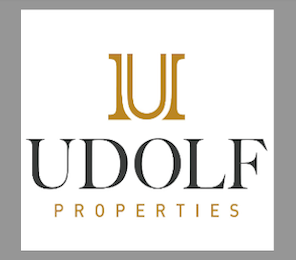
By Cindy Mindell
NEW LONDON – Mohammad Darawshe is the director of Planning, Equality and Shared Society at Givat Haviva, the Center for Shared Society in Israel. Founded in 1949, Givat Haviva works to further equality and understanding between Jews and Arabs in Israel, via opportunities for interaction and cooperation between tens of thousands of Arab and Jewish children and adults.
Like 20 percent of Israel’s population, Darawshe is a Muslim Palestinian citizen of the State of Israel; as he puts it, “a child of both identities.”
He will discuss “Forging the Threads of a Shared Society” on Thursday, March 17 at Connecticut College’s Zachs Hillel House, Jewish Federation of Eastern Connecticut. He will address the AIPAC Policy Conference in Washington, D.C. over the weekend.
“Jewish-Arab relations intrigued me at a very young age, when I met youth my age at a high school encounter organized by Givat Haviva, the same organization I work for now,” he says. “The experience of meeting a person who comes from a different culture and towards whom I had many misperceptions was shocking for me. I decided to explore even further.”
This dearth of regular interaction between Jewish and Arab or Palestinian citizens in Israel presents one of the highest hurdles to the shared society Darawshe envisions, specifically, “separation in the educational systems and in living realities, where people do not interact or socialize on a regular basis,” he says. “Government policies of discrimination make life very difficult for Arab citizens.” In addition, the Israeli-Palestinian conflict impacts negatively on Jewish-Arab relations inside Israel.
Darawshe holds a BA from the Hebrew University of Jerusalem, an MA in Public Administration from the University of Hartford, and an MA in Peace and Conflict Management Studies from Haifa University. From 2005 to 2013, he served as co-director of the Abraham Fund Initiatives, a not-for-profit organization working since 1989 to promote coexistence and equality among Israel’s Jewish and Arab-Palestinian citizens. Prior to that position, he served as the elections campaign manager for the Democratic Arab Party and later, the United Arab List. In 2008, he was elected to the council of Iksal, his native village outside Nazareth. In 2009, he served as a member of the National Committee for the Heads of the Arab Local Authorities in Israel, which drafted a landmark coexistence-education policy.
Darawshe has received several honors for his work, including the Catholic Theological Union Blessed Are the Peacemakers Award, the World Association of NGOs Peace & Security Award, and a New Israel Fund Leadership Fellowship.
He frequently appears on Arabic satellite TV news programs, analyzing current Israeli political and social trends. He is a member of several boards and committees in Israel, including the Third Sector Roundtable of the Prime Minister’s Office, the Strategic Planning Team of the Authority for Economic Development of the Arab Sector, the OneVoice Movement Executive Board, the Public Council of the Midot NGO-rating organization, and the Israeli Civic Leadership Association Executive Board.
As Darawshe sees it, the Israeli-Palestinian conflict is not historical in nature but characterized by a national disagreement over land and sovereignty.
“That conflict radiates additional complications toward the relationship between the Palestinian society inside Israel,” he says. “That makes Israel move in its relationship toward its Arab citizens to places that are wrong structurally. Israel is trying to create a structural preference for Jewish citizens over the indigenous Palestinian population who are also citizens, according to both the Israeli Declaration of Independence and the laws of the State of Israel. There are some people trying to redefine Israel, stealing it from a state of the Israelis – which is the combination of a Jewish and a democratic state, as described in the Declaration of Independence – and trying to make it a smaller definition which would make it an 80-percent state, a Jewish state only, dropping the democratic designation. The Jewish right-wing message means that Israel is Jewish toward the Arabs and democratic toward the Jews. That separation is a new attempt to try to delegitimize Arab citizenship, which is anti-democratic and anti-civic.”
But there are signs of hope, Darawshe says, including economic cooperation and development initiatives, increased educational opportunities for Israeli-Arab citizens, NGOs creating models for a shared society, and initiatives supporting equal coexistence.
“Forging the Threads of a Shared Society” with Mohammad Darawshe: Thursday, March 17, 7:30 PM, Connecticut College, Zachs Hillel House, 270 Mohegan Ave., New London. For information visit jfec.com or call (860) 442-8062.








 Southern New England Jewish Ledger
Southern New England Jewish Ledger








